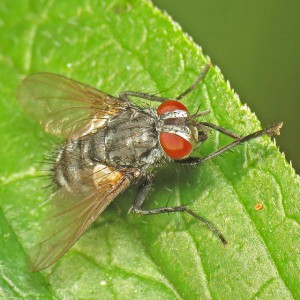Organic farming enhances the diversity of beneficial predatory insects
A new study in the Journal of Applied Ecology has found that tachinid parasitoids, a group of flies that prey on crop pests, are positively affected by organic farming. Scientists set out to investigate the effect that organic farming had on parasitoid populations at different landscape scales. They compared the abundance and number of species of parasitoids at the local scale by comparing nearby organic and conventional farms. They examined how farming method affected parasitoid diversity the larger landscape scale by comparing the abundance and species diversity of parasitoids over large swaths of land that contained different proportions of organic and conventionally farmed land. The results suggest that organic farming boosts the diversity of tachinid parasitoids at both the local and landscape level for arable lands. Organic farms had both higher abundance and species richness of parasitoids than conventional farms, and landscapes that had a higher proportion of organic land also had higher parasitoid diversity. “To restore parasitoid diversity, the promotion of organic agriculture should aim to increase both the total extent of organic farming and the connectivity of individual farms. As the benefits of organic farming to biodiversity clearly spread beyond individual farm boundaries, any assessment of organic farming should consider these positive externalities,” the authors concluded.




